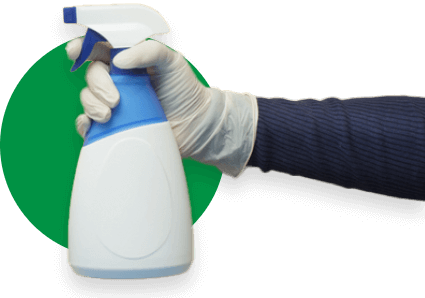The onset of flu season can wreak havoc on a business’s productivity and overall well-being. With employees working in close quarters, the spread of illnesses like the common cold and influenza can quickly lead to a significant portion of the workforce falling ill. This not only results in increased absenteeism but also presenteeism, where employees come to work despite being sick, leading to reduced productivity and the risk of infecting others. In this article, we’ll explore effective cold and flu prevention strategies for the workplace, helping businesses maintain a healthy and thriving workforce during the challenging winter months.
How Flu Season Affects Business Productivity
The flu might be brushed aside as just another seasonal ailment, but it can wreak havoc when underestimated. Beyond its potential to cause serious health issues, it can also severely impact a business’s bottom line. Absenteeism due to illness reduces productivity, and the ripple effect of one employee infecting another can lead to operational disruptions. For businesses, preventing illness in the workplace is not just a health initiative; it’s an economic one. There are a few flu precautions workplaces should utilize to reduce the spread of communicable diseases such as the flu.
The impact of the cold and flu season extends far beyond economic costs, encompassing significant implications such as productivity losses, increased healthcare expenses, and higher absenteeism rates. The flu alone costs U.S. employers and businesses approximately $11.2 billion annually in direct and indirect costs.

Identifying Risk Factors that Increase the Spread of Germs
Recognizing risk factors and exploring effective strategies to mitigate the spread of infections in the workplace is crucial for maintaining a healthy and productive work environment. Let’s take a closer look at some of the primary risk factors:
Cross-Contamination
Upper respiratory viruses that cause colds, flu, and even norovirus (stomach flu) can be spread by touching contaminated surfaces and then touching your eyes, mouth, or nose. Irrespective of the season, your workplace must be cleaned thoroughly and frequently to reduce bacteria build-up. Desks, copiers, cubicles, and break areas are hot spots for germs to fester and multiply. Attention must be paid to cleaning shared surfaces such as public workstations, desks, keyboards, door handles, and phones. High-traffic areas are excellent breeding grounds for bacteria and can increase the likelihood of spreading germs across the workforce.
Poor Office Hygiene
CBS News reported that if a virus is present on a shared surface such as a desk or door handle, it can spread to between 40% to 60% of the workforce within two to four hours. By wiping down shared surfaces with disinfectant wipes alongside practicing good hygiene, workers can minimize the risk significantly.
Employee Communication Gaps
Only 33% of employees are aware of their company’s health policies regarding illness prevention, indicating a communication gap that could be addressed.
Ineffective Cleaning Practices
“A surface contaminated by an influenza virus may remain infectious for 24 hours,” Dr. Couk explains. “And some enteric viruses such as Hepatitis A, Rotavirus, and some bacteria can remain infectious on surfaces for months.” A study found that workplaces that increase cleaning frequency during cold and flu season can reduce the incidence of illness by up to 50%.
Studies show that colds and flu viruses can survive on hard surfaces for up to 48 hours and on hands for up to 30 minutes, highlighting the importance of regular cleaning.
Inadequate Air Quality and Ventilation
Your HVAC system has filters to keep dust, allergens, and pathogens out of your home. But over time, filters can get overloaded and lose their capacity to clean. Pushing air through filthy filters makes your HVAC system have to work harder, as well.
Since colds, flu, RSV, and COVID-19 are spread via airborne particles, one of the most important things you can do is ensure air purification with advanced proactive purification technology (such as ActivePure Technology) installed in your workplace.

Effective Tips and Strategies for Cold and Flu Prevention
Being proactive in adopting preventive measures ahead of flu season is crucial for maintaining a healthy and productive office environment. Here are some essential tips and strategies to implement in your workplace:
Offer Access to Flu Vaccines
Vaccination will never cover every virus strain; they do offer protection against the most common strains and can reduce the chances of employees contracting cold and flu viruses. The Centre For Disease Control and Prevention (CDC) recommends every person 6 months and older get an annual flu vaccine. Workplaces can consider hosting a flu vaccine clinic at their office to provide resources to employees about how to access flu vaccines in the community. There is also a free online service to search for vaccines in your area.
Educate Employees on Health Protocols
Ensure employees are well-informed about cold and flu prevention at work. The CDC encourages businesses to promote the flu vaccination, encourage sick employees to stay home and make hand hygiene easy and accessible. Consider hanging posters around your business reminding everyone of flu symptoms. The CDC has resources to help you communicate workplace practices during flu season and the importance of preventing upper respiratory viruses from spreading.
Encourage employees to stay home from work if they have the flu or another virus. The Centers for Disease Control and Prevention (CDC) recommends that individuals wait at least 24 hours after a fever ends before returning to work. Employers should avoid pressuring ill workers to return to work too soon. Employers should also inform employees of the company’s paid time off or sick leave policies and associated call-in procedures in the event of an absence due to illness.
Suggest that employees with flu-like symptoms go home if the illness is akin to the common cold or seasonal flu. If the condition is considered a disability under the federal Americans with Disabilities Act (ADA), the employer must consider a reasonable accommodation and evaluate whether the illness is severe enough to pose a direct threat to others in the workplace, requiring the employee to leave the workplace.
Strengthen Daily Cleaning Practices
Regular cleaning can help remove germs and bacteria from surfaces and reduce the risk of infection. Make sure to regularly disinfect prominent high-touch areas such as doorknobs, keyboards, and phones, but also tackle unexpectedly germy areas in the office for a comprehensive approach to reducing. Door handles, elevator buttons, and stair railings need multiple rounds of sanitization each day. Consider adjusting the cleaning schedule to accommodate increased demands.
Regularly Disinfect High-Touch Areas
When it comes to disinfecting your office, be sure to use products that are approved by the Environmental Protection Agency (EPA) for killing viruses and bacteria. Follow the instructions on the product label carefully, as some disinfectants may require a certain amount of contact time in order to effectively kill germs. Additionally, make sure to properly ventilate the area when using disinfectants and avoid mixing different products, as this can create harmful fumes.

Practice Good Office Hygiene
Aside from maintaining a clean workspace, promoting good hygiene practices among employees is crucial in preventing illness spread. Encourage employees to frequently wash their hands with soap and water for at least 20 seconds, especially after coming into contact with shared equipment or surfaces.
There are a number of steps you can put in place to ensure better hygiene in the workplace. Putting up signs reminding staff of the correct procedures can be helpful. In addition, make sure your office is stocked with supplies of tissues, hand sanitizer, and disinfectant wipes which are easily accessible to all workers. You can also provide pedal bins that don’t need to be touched by hand.
Replace the Filter and Clean the Air Vents
Don’t just clean the surfaces that people touch during cold and flu season. Check the air vents and their filters, and clean those too. Keeping vents clean can help rid them of dust and dirt, and this can reduce respiratory irritation and allergies that lead to colds and infections.
HEPA air filters remove more particles from the air compared to ordinary air filters. They also last longer, about 3 times as much, saving you money in the long run. HEPA filters keep dust, allergens, pet dander, and even micro-organisms from getting into your home’s ductwork, greatly increasing the quality of your home’s air and reducing the chances of getting sick. Replacing your normal air filter is one of the best things you can do for air quality, especially in winter months.
Improve air quality by ventilating spaces. Fresh air circulation can decrease viral exposure risk by diluting potential contaminants and reducing airborne virus concentration.
Get Professional Deep Cleaning
As flu season begins and you notice the first signs of sniffles, get a professional cleaning company or your janitorial staff to do a deep clean of the office. This means everything in the office should get de-germed: the water fountain, bathroom sinks, keyboards, coffee pot, and more.
For more extensive coverage, commercial deep cleaning services will handle areas such as lobbies, shared kitchens, and restrooms. High-contact surfaces should be sanitized at least twice a day, and communal areas must receive thorough cleaning at least once a week.
While an outbreak of the flu is generally not considered a crisis in the workplace, depending on the size of your business and the number of ill workers, you may still experience impacts on your day-to-day operations and your bottom line. Consider a business continuity plan that details how the company will recover critical business functions following a disruption.
Why Regular Office Cleaning is Not Enough
While regular office cleaning is important, it may not be sufficient to combat the spread of illness during flu season. Professional cleaning services offer vital advantages to companies, including:
- Expertise in industry-certified techniques such as disinfecting all surfaces, common areas, floors, and carpets, sanitizing the entire building, and air duct cleaning services
- More frequent cleaning during cold and flu seasons to reduce the spread of germs
- Use of specialized equipment and cleaning solutions to effectively target difficult areas and prevent the reattachment of germs and harmful pathogens
Dallas Janitorial Services specializes in providing comprehensive commercial cleaning solutions to help businesses maintain a healthy work environment. With years of experience and a trained team of cleaning professionals, they offer customized services to address the unique needs of each facility.
Maintain a Healthier Workplace with Professional Sanitization Services
Maintaining a clean and healthy workplace is essential for reducing the spread of illness, improving employee well-being, and ensuring smooth business operations. By implementing effective health protocols, and cleaning routines, and partnering with professional cleaning services, companies can create a safer and more productive work environment during flu season and beyond.
Don’t let cold and flu season impact your business productivity. Dallas Janitorial Services offers comprehensive commercial cleaning solutions that help prevent the spread of illnesses in your workplace. Our professional teams use hospital-grade disinfectants and follow CDC-recommended cleaning protocols to keep your facility sanitized and your employees healthy. Contact us today to learn how our specialized cleaning services can create a healthier work environment for your team. See what our satisfied customers have to say in our glowing reviews.

FAQs About Cold and Flu Prevention in the Workplace
What is office etiquette for cold and flu season?
Always dry your hands with a fresh paper towel from a touch-free dispenser. Always, always cover your nose and mouth when you sneeze or cough. And always use a tissue, and if you are prone to sneezing, wear a mask. Want to provide more protection when viruses are working their way through the office?
What is the most effective method of preventing the spread of colds and flu?
Wash your hands with soap and warm water. Wash your hands afterward every time you shake hands with someone. Washing your hands before eating and touching your face is a crucial way to prevent the spread of harmful viruses and bacteria.
What three things should be done to protect yourself from catching the flu from coworkers or customers?
The single best way to reduce the risk of seasonal flu and its potentially serious complications is to get vaccinated each year, but preventive actions like avoiding people who are sick, covering your cough, and washing your hands also can help stop the spread of germs and prevent respiratory illnesses like flu.
How can you prevent cold and flu and wellness?
Clean and disinfect frequently touched surfaces at home, work, or school, especially when someone is ill. Get plenty of sleep, be physically active, manage your stress, drink plenty of fluids, and eat nutritious food.







